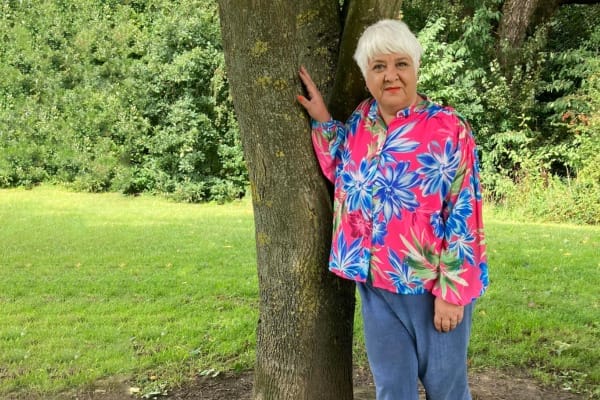Thousands of women have joined forces to try to extend the time limit on legal claims against pharmaceutical companies. The campaign has been spearheaded by Pogust Goodhead’s Client Liaison Officer Jan Faulkner and other women who have been affected by faulty medical devices. The movement calls for the UK government to #RaiseTheLimit.
Medical limitation period
Every day, medical professionals fit millions of patients around the world with medical product devices. But in the UK, patients only have ten years to make a claim against the manufacturer if something goes wrong.
For many women fitted with sterilisation device Essure, that is simply not long enough. Symptoms related to the device can take years to manifest – and even longer for their connection to the device to be recognised and for the device to be removed.
Pogust Goodhead’s claim against Essure manufacturer
Pogust Goodhead has had to turn down over 1,000 women in our claim against Essure manufacturer Bayer because they are ‘out of time’.
Earlier this year the court gave the go ahead for the case to proceed through the high courts. Unfortunately, the case will not provide closure or justice to any of the women who were unable to make a claim.
The current UK Consumer Protection Act (CPA) 1987 prevents any action against a manufacturer if a device is defective “after the expiration of the period of ten years.”
This means that from the moment the product leaves the factory the clock starts ticking. Even if the device sits in a hospital cupboard for two years before being used.
Jan’s story

Jan Faulkner was fitted with Essure in 2008 and began developing debilitating symptoms soon after.
“I started getting a lot of pain in my hips and back, and I became tired really quickly. The fatigue was awful, especially when you have five kids to look after. I couldn’t function.
“The doctors dismissed my pain, as they do with a lot of women in general. But I knew something was causing it.”
Jan was told by a sports therapist that she might have fibromyalgia – when she googled the condition, she found other women online who had been fitted with the Essure device that had the same symptoms.
She investigated legal action and met with Pogust Goodhead lawyers, but was told she was ‘out of time’ to pursue a claim.
“I went back to my GP and demanded they take it out. After, I felt like a different woman. I got my old life back and it felt like such a relief.”
She said that she didn’t realise that, in Britain, if you use a faulty medical product or device, you only have ten years from the date of it is manufacture to hold its company to account.
“It can take years to find out why your body is reacting badly to something. It could take another decade just to gather the medical evidence and get doctors to properly test. By that time, you have lost your opportunity to take your case to court.”
Jan now dedicates her time to helping women through her role at Pogust Goodhead. She also runs a support group on Facebook for women affected by the Essure device and meets with them regularly.
“We need to see this law changed. I’m calling to raise the limit so that women like me don’t face the same problems again.”
Raise the Limit campaign
Jan is joined by thousands of women who have also been affected by this archaic EU law.
They have been sharing their stories online with the #RaiseTheLimit hashtag to make their case known and gather support around the UK.
They have also written to their local MPs – and a number of key medical trade bodies, government agencies, alongside NGOs and charities including the Royal College of Obstetricians and Gynaecologists and the British Medical Association.
Jade’s story

Mum of four, and military wife, Jade Jordan, 39, was fitted with an Essure device in 2014 – but missed out by DAYS on making a legal claim.
Jade’s problems with Essure began immediately. She was suffering with extremely heavy periods, to the point where she couldn’t leave the house for at least a day in her cycle.
She asked doctors if it could be the Essure device but was dismissed, and so as a busy military wife with a husband away on tours she tried to concentrate on her children.
“Every month I would bleed so heavily I passed out. The children were horrified witnessing it at first but eventually got so used to it then would step over me on the floor. Several times I ended up in hospital needing transfusions.
In September 2022, Jade and her husband saw a consultant and demanded a hysterectomy. He agreed but asked her to have more scans to be sure. One scan revealed the device had detached. Her surgery was then marked as urgent and in August 2023 Jade had a hysterectomy.
“I felt immediate relief. It was only then I realised just how poorly I had been. I’d been constantly tired and drained, headaches, depression. I felt like I had woken up again.”
Shortly before surgery, Jade began looking into legal action and requested her medical notes which took weeks to be gathered. She discovered her device had been manufactured in July 2013. She was out of time by a matter of days.
“The fact that it took weeks to track down my notes meant that I was out of time. You can’t have a legal claim until you have the device removed and prove that’s what was causing you issues. What about NHS waiting lists for surgery? It is ridiculous.”
Pogust Goodhead supporting Raise the Limit campaign
The campaign has already recieved national interest with stories in The Mail Online and The Express.
Lisa Lunt, Partner at Pogust Goodhead and Head of Medical Product Liability, said:
“The Consumer Protection Act needs to be changed to remove the current 10-year longstop limitation which protects industry, not the trusting patient.
“Sadly, some pharmaceutical and manufacturing companies are selling medical products without proper testing, leaving women and men vulnerable. If they can’t take those companies to court, because the product was manufactured more than 10 years ago, they have no access to justice. It’s an absolute scandal and that’s why I support Jan’s campaign to extend the statute of limitations to 20 years.
“It can take years for the patient and their doctor to realise that the medical device or product is responsible for their problems, years to gather medical evidence and potentially the same to be on a waiting list to have it removed. By that time, it can be too late to claim.”
Please join us in spreading the word by sharing your support online and use the hashtag #RaiseTheLimit or if you have been affected by the time limit, you can reach out to Jan directly at raisethelimitcampaign@gmail.com









